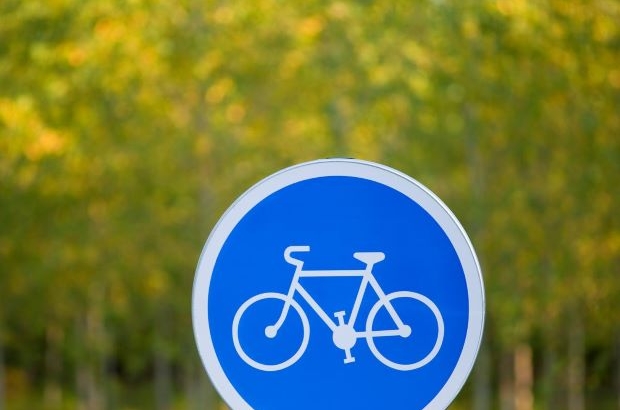- Daily & Weekly newsletters
- Buy & download The Bulletin
- Comment on our articles
Expat Q&A: What happens in an accident involving a cyclist?
The number of cyclists on Brussels roads is constantly increasing for a number of reasons, including fuel costs, health benefits, ease of parking, avoiding traffic jams and concern for the environment.
But the risk of accidents also increases exponentially with more cyclists on the streets. Fortunately, cyclists are legally protected as vulnerable road users when it comes to personal injury. However, in case of property damage, the cyclist could be liable, depending on the circumstances.
In the event of an accident involving a motorist and a cyclist, who will pay compensation? And which insurance covers this? The Expat Welcome Desk has the lowdown.
Who is at fault?
It's worth noting that the liability system works differently than for a collision involving two cars because cyclists are considered to be 'vulnerable road users' under the law. So in the event of an accident, the cyclist's physical injury (medical expenses, disability benefit) will always be covered under the motorist's third-party liability insurance. Even if you were not at fault, you are still liable. This is known as 'strict liability'.
However, this 'strict liability' only applies to the cyclist’s physical injury, not to material damage to the cyclist's bike.
Who pays for property damage?
This is where the highway code kicks in to determine who is at fault: orders from a police officer, traffic lights, road signs and priorities!
1. If the motorist was not at fault
The motorist's third-party liability insurance will nonetheless cover the cyclist's medical expenses (as explained above), but their 'bonus-malus' (weighted risk assessment) will not increase because they were not at fault.
The cyclist's family insurance will cover any property damage to the car because the cyclist was at fault. In the absence of family insurance, the cyclist will have to personally pay because cyclists are civilly liable for any damage they cause to third parties. It is therefore in their interest to take out family insurance to avoid any unpleasant surprises.
Although not compulsory, many people in Belgium take out family insurance because it’s considered essential - even if you don’t have children or if you live alone. Family insurance covers all accidental damage caused to a third party by a family member or your pet. We all know that simple accidents can sometimes have serious consequences. Family insurance covers all persons forming a household and living under the same roof.
If the driver was not insured or the vehicle involved in the collision cannot be identified, for example in a hit-and-run accident, the victim can claim compensation from the Belgian Guarantee Fund (www.fcgb-bgwf.be). This body was set up to compensate cyclists for physical injury (this does not include damage to clothing) in such situations.
2. If the cyclist was not at fault
The motorist's liability insurance will compensate the cyclist for property damage and physical injury. Motorists' property damage will only be compensated if they have taken out comprehensive car insurance. Physical injury is only covered if they took out driver protection cover. Otherwise, they'll have to pay for this themselves.
How to proceed in the event of an accident
- Fill out AN ACCIDENT STATEMENT FORM in the interest of all parties involved! Even if you feel fine immediately after the accident, there’s a risk of delayed pain or injury afterwards.
- Cyclists should always have their family insurance policy number on them.
- In the event of an injury, report the accident to the police.
In conclusion, although vulnerable road users are legally protected, they do not enjoy total immunity, meaning they remain civilly liable in the event of an accident if they fail to comply with the highway code. That's why we encourage you to take out family insurance.
The Expat Welcome Desk is a free service that advises internationals on the practicalities of daily life in the Belgian capital, from accommodation and residence permits to employment rights and taxation, among a number of topics.



















